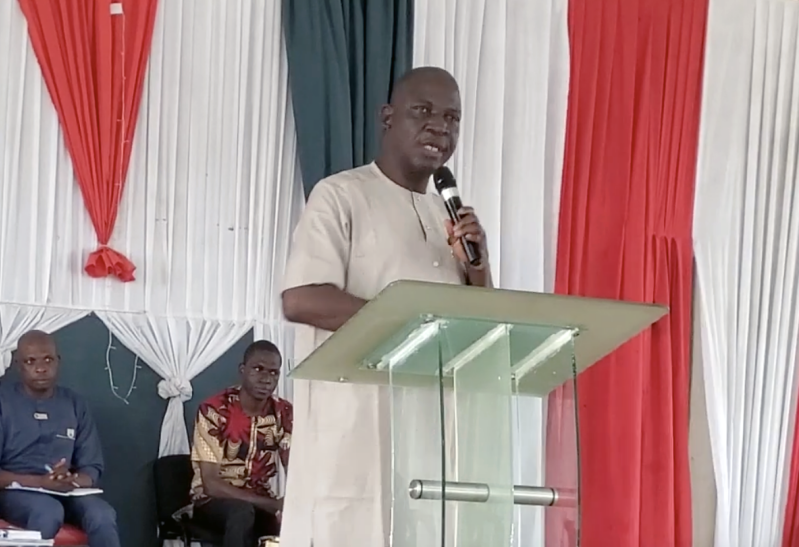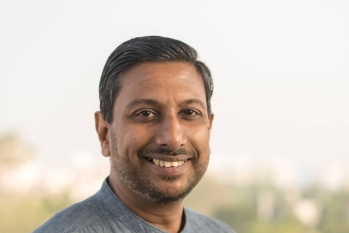
As Nigeria celebrated its 65th Independence anniversary, one of the country’s foremost evangelical leaders called for a “time of sober reflection,” urging church leaders to see their spiritual calling as inseparable from the destiny of the nation and to speak prophetically to its moral and social crises.
The Rev. Dr. Job Ayuba Bagat Mallam, president of the Evangelical Church Winning All (ECWA), delivered the message to pastors gathered for the ECWA Pastors International Conference in Karu, near Abuja, on Oct. 1 — the same day the nation commemorated its independence from British colonial rule in 1960.
“This is a time of sober reflection,” Mallam said. “As pastors and spiritual leaders, we cannot separate our calling from the destiny of our nation. The welfare of our country affects the health of our church, just as the integrity of the church influences the progress of our nation.”
‘Prophetic voices of truth, justice, and hope’
Mallam’s remarks came amid growing public frustration over insecurity, corruption, and the rising cost of living, which have tested the faith and resilience of Africa’s most populous nation. He said the Church must not retreat from its prophetic responsibility to address these challenges.
“Our role as pastors is not only to shepherd our congregations but also to be prophetic voices of truth, justice, and hope in the land,” he said. “Nigeria today faces many challenges — economic hardship, insecurity, corruption, moral decay, youth restlessness, and deep divisions along ethnic and religious lines. Yet, as people of faith, we affirm that ‘righteousness exalts a nation, but sin is a reproach to any people’ (Proverbs 14:34).”
He urged the clergy to lead their churches in spiritual renewal, calling repentance and intercession the nation’s greatest needs. “Our nation’s ultimate hope does not lie in political promises or economic reforms alone, but in a return to God,” Mallam said. “We must lead our churches in genuine repentance, fervent intercession, and consistent teaching of God’s Word that transforms lives and communities.”
He emphasized three responsibilities for Christian leaders: spiritual renewal for national healing, moral leadership in a broken society, and active engagement in nation-building. “The church must be a moral compass for the nation,” he said. “When corruption spreads, we must shine as lights of honesty, accountability, and service.”
Quoting Jeremiah 29:7, he called pastors to “seek the peace of the city… for in its peace you will have peace.” He concluded with a message of hope: “If we remain faithful to God and to our calling, Nigeria will rise again, and the church will remain her greatest hope.”
President Tinubu: ‘The worst is over’
In a national broadcast marking the anniversary, President Bola Ahmed Tinubu acknowledged Nigeria’s difficulties but said the country had turned a corner through what he called “bold reforms.” He credited his administration’s fiscal and monetary policies for stabilizing the economy and pledged that “the dawn of a new, prosperous, self-reliant Nigeria is here.”
“Today marks the 65th anniversary of our great nation’s independence,” Tinubu said. “While we may not have achieved all the lofty dreams of our forebearers, we have made tremendous progress in economic growth, social cohesion, and physical development.”
Tinubu cited gains in education, healthcare, infrastructure, and foreign reserves since 1960, and said his government had restored fiscal health and reduced debt ratios. “Under our leadership, our economy is recovering fast, and the reforms we started over two years ago are delivering tangible results,” he said, noting that GDP growth in the second quarter of 2025 reached 4.23 percent — the fastest pace in four years.
He also pointed to falling inflation, an expanding tax base, and increased oil production as signs of recovery. “The worst is over,” Tinubu declared. “Yesterday’s pains are giving way to relief. I salute your endurance, support, and understanding. I will continue to work for you and justify the confidence you reposed in me.”
President praises victories against terrorism and banditry
President Tinubu also addressed Nigeria’s longstanding security challenges, praising the military and law enforcement agencies for what he called “significant victories” against terrorism and violent crime. He said peace had been restored to hundreds of communities in the North-East and North-West that were once under the control of insurgents and criminal groups.
“The officers and men of our armed forces and other security agencies are working tirelessly and making significant sacrifices to keep us safe,” Tinubu said. “They are winning the war against terrorism, banditry, and other violent crimes. We see their victories in their blood and sweat to stamp out Boko Haram terror in the North-East, IPOB/ESN terror in the South-East, and banditry and kidnapping across the country.”
He added that thousands of displaced persons had returned to their homes and pledged continued investment in security operations and local development to consolidate peace. “We must continue to celebrate their gallantry and salute their courage on behalf of a grateful nation,” Tinubu said.
WTO head says reforms bearing fruit
World Trade Organization Director-General Ngozi Okonjo-Iweala, a former Nigerian finance minister, echoed cautious optimism about the country’s direction. “President Tinubu’s reforms might be harsh now, but they would birth a new and prosperous nation,” she said in a statement marking the anniversary.
“I have lost count of presidents, respected institutions, and investors that have called to congratulate me on Nigeria eventually having a focused leader since the reforms were rolled out,” she added, noting that several multinational manufacturing companies plan to explore investment opportunities in Nigeria later this year.
“Church is called to be salt and light”
For many Christian leaders, the intersection of faith and national renewal remains central to Nigeria’s journey. ECWA, one of the country’s largest evangelical denominations with millions of members, has long been active in education, health, and missions work across West Africa.
Mallam said that such engagement is now more vital than ever. “The pulpit must not be silent on issues of justice, peace, and development,” he said. “The church is called to be both salt and light.”






